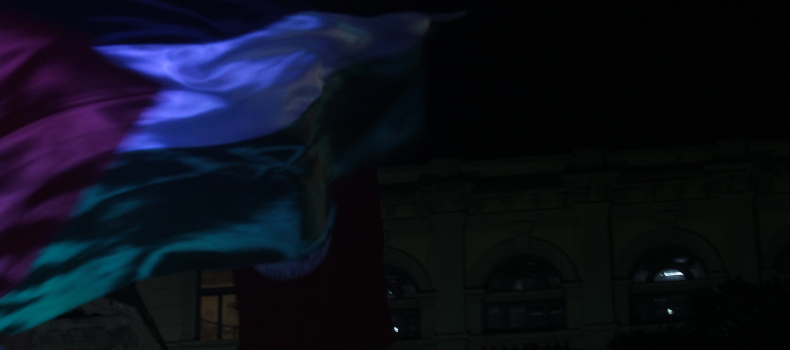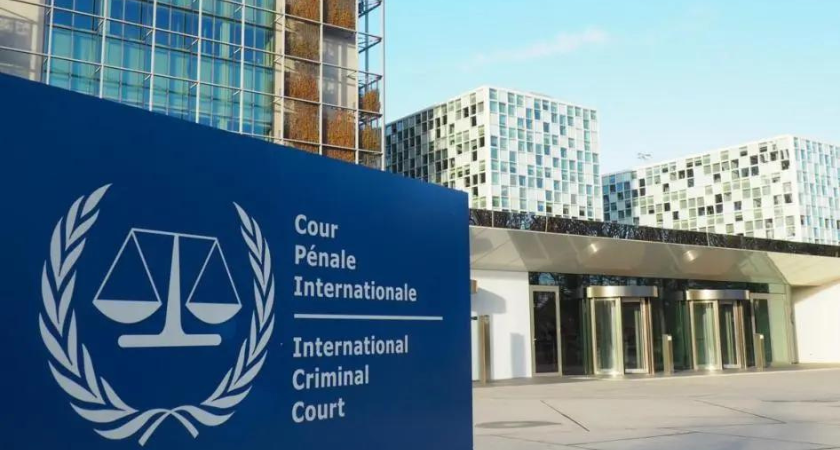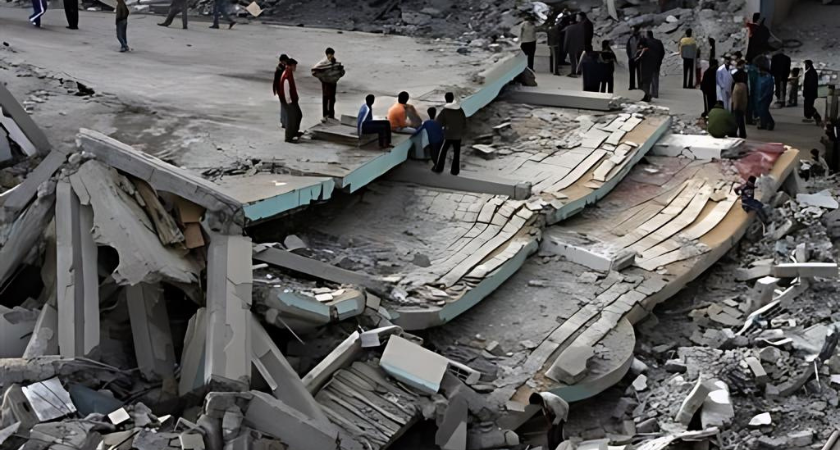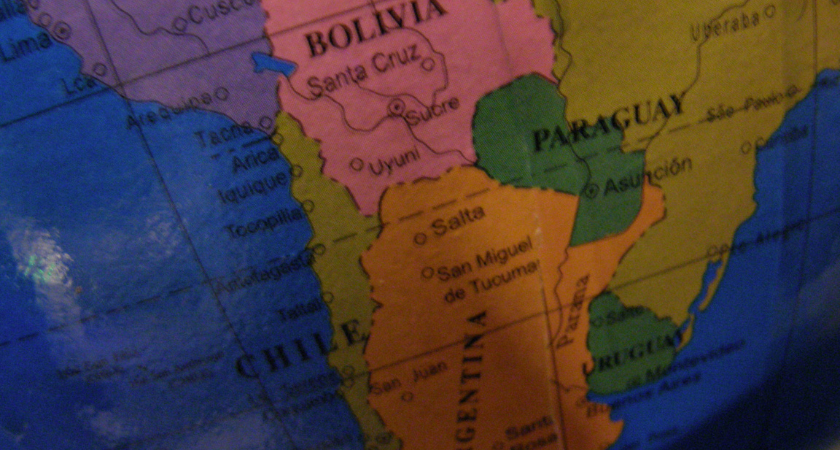Latin America And The Gaza Drama: Remarks By Bolivia, Brazil, Chile, Colombia And Mexico To The ICC

Original title: “ Latin America in the face of the drama in Gaza: regarding the observations sent by Bolivia, Brazil, Chile, Colombia and Mexico to the International Criminal Court (ICC)”. Text written by Professor Nicolás Boeglin, from the Law School of the University of Costa Rica.
On August 6, 2024, Bolivia, Brazil, Chile, Colombia and Mexico deposited their written observations with the Pre-Trial Chamber of the International Criminal Court (ICC). The latter refer to the announcement made by the Prosecutor to the ICC last May 20, requesting the issuance of an arrest warrant against three Hamas leaders and against two leaders in Israel: its Prime Minister and its Defense Minister.
This is a request from the Prosecutor to the ICC judges that we had the opportunity to analyze at the time (May 2024) and that caused, in Latin America, objections from Paraguay and – a few days after May 20 – from Argentina only (Note 1).
With respect to Israel’s relations with these five Latin American states, it is worth reminding our esteemed readers that:
- Mexico maintains diplomatic relations with Israel;
- Bolivia broke off diplomatic relations with Israel early (see official press release of October 31, 2023), while;
- Chile chose to recall its ambassador to Israel for consultation (see official statement) on the same date;
- Colombia opted for a decision similar to Bolivia’s on May 1, 2024 (see official statement);
- Brazil recalled its ambassador to Tel Aviv on May 29, 2024 (see note from France24).
Drama in Gaza
As a detail of interest, it is noteworthy that on June 26, 2024, the Israeli press echoed a report on the possibility that these arrest warrants requested by the ICC Prosecutor would materialize in a matter of weeks (see note from the Times of Israel). 24 hours later, the same Israeli media reported a démarche to the ICC by the UK to postpone the issuance of these arrest warrants (see note): by questioning whether the ICC can fully apply its jurisdiction to acts committed by Israel in the Palestinian territory, the UK opened up additional time.
The ICC Under Israeli Special Surveillance

Note that in May 2024 a group of journalists in Israel unveiled a specific Israeli intelligence eavesdropping and interception program dedicated solely to ICC personnel and the contents of their computers: the article entitled ‘Surveillance and interference: Israel covert war on the ICC exposed’ published by Magazine+972 media on May 28, 2024 constitutes a highly recommended reading report, in which one can learn how for almost 10 years Israel has been constantly surveilling the ICC and its personnel. Among other details, it reads that:
The former prosecutor was far from the only target. Dozens of other international officials related to the probe were similarly surveilled. One of the sources said there was a large whiteboard with the names of around 60 people who were under surveillance — half of them Palestinians and half from other countries, including UN officials and ICC personnel in The Hague.
It is also indicated that for each case brought to the attention of the ICC “intercepted”, Israel prepared detailed information in the interest of asserting its own internal investigations carried out, all in the interest of being able to invoke before the ICC Prosecutor and judges the principle of complementarity:
If materials were transferred to the ICC, it had to be understood exactly what they were, to ensure that the IDF investigated them independently and sufficiently so that they could claim complementarity,” one of the sources explained. “The claim of complementarity was very, very significant.
Gaza Drama
In the face of general reprobation and lack of transparency from the same authorities in the Netherlands (see note from The Guardian of May 31, 2024 reporting an initiative by a legislator), finally, the authorities in the Netherlands summoned Israel’s representatives in the Dutch capital to seek clarification and express their deep indignation at such an action (see note from The Guardian, June 24, 2024): this Israeli eavesdropping and interception program violates the most elementary rules protecting international organizations and their officials in force in the international legal order.
Despite the seriousness of the revelations made from Israel by extremely well-informed Israeli journalists, the time taken by the Dutch authorities to summon the Israeli diplomats is evidence of some kind of resistance within their state apparatus. This is the same group of Israeli investigative journalists who made known to the world the existence of the artificial intelligence program “Lavender” by which Israel proceeds to choose the people it eliminates in Gaza (see article published on April 3, 2024 in the digital media Magazine +972, entitled “ ‘Lavender’: The AI machine directing Israel’s bombing spree in Gaza”).
The Unspeakable Gaza Drama

The latest report on the situation in Gaza by the United Nations (as of August 12, see link), gives an account of the intensity of the bombardment of the civilian population in Gaza. Its detailed reading is recommended in order to know the extent of Israel’s military operations.
The figures noted therein can be compared to the same statement of condition as of August 5, 2024 (see link), which indicated that:
Between the afternoons of 1 and 5 August, according to the Ministry of Health (MoH) in Gaza, 143 Palestinians were killed and 341 were injured. Between 7 October 2023 and 5 August 2024, at least 39,623 Palestinians were killed and 91,469 were injured, according to MoH in Gaza. Moreover, according to the Gaza Government Media Office (GMO) and Palestinian Civil Defense (PCD), there are some 10,000 people reportedly missing or under rubble in Gaza. The MoH documents the full identification details of casualties and has recently published the breakdown of 28,185 out of 37,900 fatalities as of 30 June for whom full details have been documented by MoH (also available on the Health Cluster’s Unified Dashboard here); according to MoH, these reportedly include 9,351 children, 5,320 women, 2,414 elderly, and 11,100 men. The documentation process is ongoing by the MoH. Fatalities include 885 health workers, MoH further reported“.
Drama in Gaza
On the death and injury toll in Gaza, a noted military bombing expert pointed out in a article recently published in France, entitled “Gaza, le bilan ‘difficile mais essentiel’ d’un carnage”, that the UN figures are far below reality, and quantifies the deaths in Gaza since the evening/night of October 7, 2023 at more than 80,000:
Hypothèse basse : 80,000 morts et 15% de la population gazaouie blessée ou tuée
80,000 morts et 280,000 blessés, soit 360,000 victimes de cette guerre (15% de la population) est l’hypothèse basse que j’avance, sur la base d’une estimation des dommages directs des bombardements (bomb damage assessment).
Tsahal, l’armée israélienne, a conduit en moyenne 300 bombardements par jour jusqu’à début juin puis elle aurait diminué son rythme de moitié ce dernier mois, faute de cibles… Avec un trend de 9,000 bombardements par mois (artillerie, missiles et bombes), le bilan sur la durée du nombre de morts est de cet ordre : 9,000 morts / mois avec une réduction au mois de juin, soit plus de 80,000 morts à mi-juillet
An interesting article published in Israel details the disinformation strategy deployed by Israel to minimize and ignore the consequences of its military action in Gaza in the world of information and communication (see report published on July 24 entitled “How Israel plans to whitewash its war crimes in Gaza”, recommended reading). Also recommended reading is this detailed report by the Committee for the Protection of Journalists, dated August 14, 2024, on the justifications Israel offers every time it murders journalists in Gaza (see report entitled: “CPJ denounces Israel’s smearing of killed Palestinian journalists with unsubstantiated ‘terrorist’ labels”).
For its part, the renowned Israeli NGO B’Tselem very recently published a report on the detention centers in Israel and the torture to which people from Gaza are subjected in these detention centers (see link to the report entitled “Welcome to hell: the Israeli prison system as a network of torture camps”, the full reading of which is also highly recommended).
Observations Submitted by Latin American States To ICC In Brief

While Brazil and Colombia presented their observations in a document each from their respective diplomatic apparatuses, Chile and Mexico opted to agree on a joint written communication (which denotes a coordinated work of their respective diplomatic apparatuses).
As for Bolivia, it chose to subscribe to a text jointly with Bangladesh, Comoros, Djibouti and South Africa: this is a group of States that early on submitted an urgent (“referral”) request to the ICC dated November 17, 2023 (see text).
Drama in Gaza
The document submitted by Brazil is available at this link and is recommended reading.
In the document submitted by Colombia this August 6 in The Hague (see full text), Colombia (like Brazil) makes the point that the jurisdiction of the ICC must apply to all occupied Palestinian territories, including Gaza, and that in no way can it accept the idea that the 1993 Oslo agreements limit or condition the full application of the ICC’s jurisdiction to examine, investigate and punish those responsible for particularly serious acts that qualify as genocide, war crimes and crimes against humanity committed by Israel’s military forces.
In paragraph 21 of its submission, Colombia states that:
21. Without a doubt, international norms governing accountability for war crimes, crimes against humanity and genocide, embody peremptory norms of international law accepted as such by the international community as a whole. Because of this high normative statute, States cannot be dispensed from the obligation to comply with these norms based on a bilateral agreement.
Echoing the recent ruling of the International Court of Justice (ICJ) in its advisory opinion of July 19, which we had the opportunity to analyze (Note 2), Colombia further states that:
23. The International Court of Justice also referred to the Oslo Accords in its Advisory Opinion concerning ïhe Legal Consequences arisingfrom the Policies and Practices of Israel in the Occupied Palestinian Territory, including East Jerusalem, rendered on l9 July 2024.The Court stated that “…the Oslo Accords cannot be understood to detract from Israel’s obligations under the pertinent rules of international law applicable in the Occupied Palestinian Territory.
Drama in Gaza
The reference to the recent ICJ advisory opinion reappears in a large number of opinions sent to the ICC at the beginning of August. This is undoubtedly one of the first effects of this historic advisory opinion of the ICJ of July 19, 2024, which is destined to inspire not only States and judges of the ICC, but also other operators of justice: in particular judges of national jurisdictions who have been asked to order a halt to the export of arms to Israel and of goods and materials used by Israel to consolidate its illegal occupation of Palestinian territory.
It is an advisory opinion of the ICJ that is already calling many jurists to demand a complete review of the bilateral relations of the European Union (EU) with Israel (Note 3) and that should inspire many others to demand a similar review in other latitudes of the planet.
For their part, in the joint opinion released by Chile and Mexico (see document), both States also reaffirm the full competence of the ICC to examine the situation in the Palestinian territory, regretting the maneuver of the United Kingdom and its delaying effect (see paragraphs 7-8) for the issuance of the aforementioned arrest warrants, requested since May 20 by the ICC Prosecutor. It should be recalled that in January 2024, Chile and Mexico jointly sent an urgent “referral” to the ICC (see official communiqué of January 18, 2024 from Chile).
Drama in Gaza
In the text signed by Bolivia, as well as by Bangladesh, Comoros, Djibouti and South Africa (see full text), the concluding part reads:
32. The Court has duly defined the territorial scope of its jurisdiction in the Situation in Palestine. The matter is therefore res judicata. To the extent that renewed challenges to the Court’s jurisdiction are made, these must be undertaken in conformity with the Rome Statute.
33. The Court at present is only required to determine whether arrest warrants may be issued in terms of article 58, the requirements of which have been met. The Oslo Accords are not a bar to the Court exercising its jurisdiction. Any challenge to jurisdiction in individual cases may only be raised in accordance with article 19.
The Procedural Stage In Brief
The communication submitted by Colombia to the ICC has been preceded by those of Spain (see document), Ireland (see full document) which go in the same direction, as well as by Palestine (see document).
Israel, for its part, chose not to submit any written opinion to the ICC.
The fact that, from the city of Oslo itself, the scope of the 1993 Oslo Accords is being clarified to the ICC in relation to its jurisdiction is quite striking. It is probably what led Israel this August 8 to suspend the permits granted to Norwegian diplomatic personnel accredited in Palestine, even if it is officially explained that this decision was taken because of Norway’s recognition of Palestine as a State (see the note of the Jerusalem Post and the cable of the Reuters agency of August 8). The official reaction of the Norwegian diplomatic apparatus was not long in coming: see the official communiqué of the same August 8 from Norway, and the backing of the European Union (see communiqué).
In the opposite direction, claiming an alleged limitation to the ICC’s jurisdiction, Israel has been able to rely only on a document issued by Germany (see document), the United States (see document), Hungary (see document) and the Czech Republic (see document); in the case of the United States, paragraphs 16-26 of its brief constitute an attempt – rather crude – to discredit the ICC Prosecutor’s application based on an interpretation of the provisions of the Rome Statute to which the United States… is not a State Party.
Drama in Gaza
Israel has also been able to rely on the views of various academics and organizations that seek to limit the scope of application of international criminal justice to crimes committed by Israel in the Occupied Palestinian Territory.
Among the opinions emanating from academics and human rights organizations, many significantly reinforce the positions held by Brazil, Bolivia, Chile, Colombia and Mexico: see in particular one of the first opinions to reach The Hague from a renowned American academic (see document), and the one subscribed by two of his colleagues with extensive experience (see document); as well as the opinion of a Geneva-based NGO (see document), that of two NGOs based in France (see document and the same document in French), that submitted by two entities based in London (see document), and that submitted by two organizations based in Egypt and one in Ramallah in Palestine (see document), among many more opinions. Also noteworthy is the document co-signed by Human Rights Watch and Amnesty International together with three NGOs (see document).
Mention should also be made of the 30 UN human rights experts who sent a joint opinion to the ICC judges (see document, whose full reading and re-reading are recommended), and who conclude by emphatically pointing out that:
23. The Mandate Holders recognize the Court’s role in ensuring international justice as a critical component of preserving international order through the protection of the interests of victims of international crimes. People around the world, especially youth, advocating for the application of international law, are watching closely, hoping the promises of international peace are not devoid of meaning.
24. In light of the expert opinions shared in this document, the Mandate Holders urge the Court not to further delay the delivery of justice in the occupied Palestinian territory, through the prosecution of alleged criminals. The significant effects of this failure would be felt far beyond the tormented land of Palestine.
Drama in Gaza
It should be noted that Argentina and the Republic of Congo are on the list of entities entitled to submit their opinion to the ICC, but the receipt of their respective submissions has not been registered in The Hague (see list in the text of the ICC decision of July 22). Since August 13, the text sent by the Congolese diplomacy is available (see document). Regarding Argentina, we had recently (May 2024) the occasion to mention a vote at the United Nations in which Argentina “stood out” from the rest of all Latin America by voting like Israel, by indicating (Note 4) that:
En sentido opuesto, por vez primera se observa a Argentina unirse a la denominada “coalición” que vota sistematicamente en contra de textos objetados por Israel, a saber: Estados Unidos, Israel, Micronesia, Palau, República Checa, Nauru (Nota 6), a la que se unieron en esta precisa ocasión, Hungría y Papua Nueva Guinea.
In order to assess the way in which public opinion in Israel was informed of the numerous letters sent to the ICC before the August 7 deadline, we refer to this note from the Times of Israel of August 9, which refers to only two of them.
An Abandoned British Maneuver

What is striking is that this procedural stage not contemplated was due to an initial maneuver by the United Kingdom formalized on June 11, 2024, which led the ICC Pre-Trial Chamber to adopt a decision on June 27, 2024 granting a deadline for the submission of written pleadings on what was alleged by the United Kingdom (see decision of June 27).
Note that in paragraph 7 we read that:
The United Kingdom requests that the Request be reclassified, because ‘[t]he sensitivity of the situation and the need for secrecy in certain aspects do not mean that this particular Request needs to be secret or confidential’ and asks permission to file its observations, if granted, publicly. The Chamber instructs the Registry to reclassify the Request as ‘public’. The Chamber further agrees that given the matter the United Kingdom wishes to address, its observations may be filed publicly.
On July 1, the UK requested an additional extension from the ICC Pre-Trial Chamber to submit its legal opinion (see request), which was granted a few days later, on July 4 (see decision).
Drama in Gaza
In the specialized doctrine, these decisions of the three judges of the ICC Pre-Trial Chamber have been harshly criticized, as they open up an unnecessary time-frame that does not conform in the least to the practice of the ICC, nor to the urgency of the situation in Gaza (Note 5). The fact that, in the case of Russia, an ICC Pre-Trial Chamber issued without further ado arrest warrants against two senior Russian leaders (including its President) for committing war crimes on the territory of Ukraine (see official communiqué of the ICC), is a recent (March 2023) development of some interest.
However, the initial delaying tactics of the United Kingdom suffered an unforeseen event for its managers and promoters: in fact, following the result of the elections in the United Kingdom on July 4, the new British authorities did not consider it necessary to continue the initiated tactics, simply opting not to present any plea on the alleged limitation to the ICC’s jurisdiction that would derive from the Oslo agreements of 1993: see in this regard this note from The Guardian of July 26, 2024.
In Conclusion
It is noteworthy that in the American hemisphere, Israel could not rely this time on a State Party to the 1998 Rome Statute such as Canada, usually very responsive to Israel’s requests, nor on input from Guatemala. As for the legal opinion sent to the ICC by the United States, it raises some very valid questions coming from a non-State Party to the 1998 Rome Statute. A non-State Party explaining to ICC judges how the provisions of the Rome Statute should be interpreted? How so? As it reads.
In Europe, Israel could only count on the efforts of the diplomatic apparatuses of Germany, Hungary and the Czech Republic, other European States opting this time not to come to support the legal theses favorable to Israel: theses that a Preliminary Chamber of the ICC already discarded in a historic decision of February 5, 2021, which we had the opportunity to analyze at the time (Note 6).
Drama in Gaza
No legal opinion in favor of Israel’s legal theses is registered on the ICC website from African states (with the exception of the one submitted by the Republic of Congo), Asia or the Pacific, the latter being a region of the world where Israel has always found island states acting as unfailing allies in defense of its interests.
On August 12, 2024, it was the victims’ representatives who sent the ICC their written observations in four different texts: see this written submissionand this other opinion, as well as this documentand this other communication.
Having received the various legal opinions from various States and entities, as well as from academics, the ICC Pre-Trial Chamber set August 26 as the deadline for the ICC Prosecutor to make known his views on the content of these legal opinions (see decision of August 9, 2024).
Text shared by Nicolás Boeglin, Professor of International Public Law, School of Law, University of Costa Rica (UCR). Contact: [email protected]
Notes
Note 1: See BOEGLIN N., “Gaza / Israel: apropos of the International Criminal Court (ICC) Prosecutor’s announcement to seek warrants for war crimes and crimes against humanity”, May 20, 2024. Text available here.
Note 2: See BOEGLIN N., “Prolonged occupation and illegal Israeli colonization of Palestinian territory: notes in relation to the recent advisory opinion of the International Court of Justice (ICJ)”, July 19, 2024. Text available here.
Nota 3: Véase AL TAMIMI Y., “Implications of the ICJ Advisory Opinion for the EU-Israel Association Agreement“, EJIL-Talk, 30 de julio del 2024. Texto disponible aquí.
Note 4: See BOEGLIN N., “Palestine: apropos of the recent resolution on Palestinian rights as a future Member State of the United Nations” May 10, 2024. Text available here.
Nota 5: Véase por ejemplo VASILIEV S., “Friendly Feast during the Plague: Is the Pre-Trial Chamber Losing its Way on the Palestine Arrest Warrant Proceedings?“, EJIL-Talk, 1ero de agosto del 2024. Texto disponible aquí.
Note 6: See BOEGLIN N., “International Criminal Court (ICC)/Palestine: the end of impunity for perpetrators of war crimes committed in Palestine?”, February 5, 2021. Text available here.
Navigate articles






